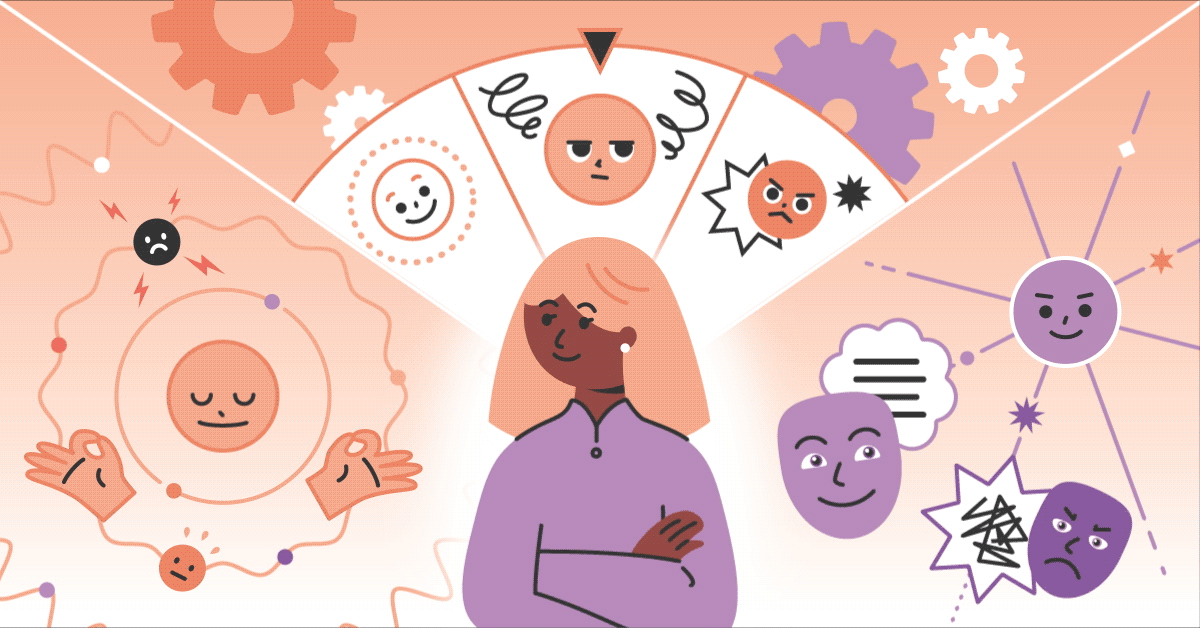
As parents of children with autism, we’re often told to focus on building ‘skills,’ such as communication, daily living, and motor coordination.
But what if we told you that one of the most important pieces of the puzzle is something often overlooked?
Emotional regulation.
It’s not just a word or a concept that parents and children try hard to navigate; well, it’s truly a game-changer.
What is Emotional Regulation, Anyway?
Emotional regulation is the ability to manage and respond to an emotional experience in a socially acceptable and flexible way.
Sounds simple, right? Not always.
For children with ASD, emotional experiences can feel like tidal waves—intense, unpredictable, and overwhelming. Whether it’s frustration over a broken toy or anxiety during a loud birthday party, their reactions aren’t always proportional or understandable to others.
And when these feelings are bottled up or explode outward?
Cue meltdowns, shutdowns, or escape behaviors.
That’s why teaching emotional regulation isn’t just about behavior management. In fact, it’s about helping children feel safe, understood, and empowered.
Why Is Emotional Regulation Important for Children with Autism
According to a study published, over 70% of children with ASD struggle with emotion regulation, which often leads to anxiety and mood disorders later in life (source).
Without support, these emotions can become barriers to learning, relationships, and independence.
The benefits of teaching emotional regulation in early childhood are significant:
- Improved social interaction: Children can better engage with peers, understand boundaries, and express feelings appropriately. For instance, a child who previously responded to peer conflict with yelling learns to say, “I need a break,” instead. With support, they begin taking turns during play and participate in group games more calmly.
- Enhanced learning potential: When kids aren’t overwhelmed by emotions, they’re more receptive to learning. Consider this: A preschooler who used to cry during activity transitions learns to manage anxiety using visual cues and breathing techniques, leading to better focus and participation in class.
- Greater independence: Regulating emotions leads to fewer outbursts and greater participation in daily routines. A child, for example, who frequently had morning meltdowns over clothing discomfort begins using coping tools to express discomfort, resulting in smoother routines and increased self-reliance.
Signs Your Child May Be Struggling with Emotional Regulation
It can be hard to tell what’s a “typical toddler tantrum” and what’s a sign of something more. Here are some signs to look out for:
- Frequent meltdowns in response to minor changes
- Difficulty calming down after getting upset
- Avoidance of social situations due to stress
- Aggression or self-injurious behavior when overwhelmed
And hey, if your child has ever melted down because their toast was cut the “wrong” way—you are so not alone.
Can Emotional Regulation be Learned?
The good news? Emotional regulation can be taught and learned with patience and the right guidance, and it’s never too early to start. Here’s how:
-
Name it to Tame it
Labeling emotions helps kids understand what they’re feeling. Use simple language: “You look angry,” “You seem frustrated.” Visual emotion charts work wonders—because, let’s face it, sometimes kids just don’t want to talk, and that’s okay.
Consider this: your child suddenly becomes quiet, crosses their arms, and turns away when it’s time to stop screen time. Instead of guessing or reacting, you calmly say, “You seem upset—are you feeling angry because the iPad time is over?” Your child nods, and you point to the emotion chart. They choose the “angry” face, then take a few deep breaths. Just like that, a potential meltdown turns into a teachable moment.
-
Create a Calm Corner
A cozy, safe space with calming items like weighted blankets, sensory toys, or soft music gives children a place to reset. This isn’t a time-out—it’s a “chill zone.” Pro parenting tip: You may find yourself using it, too!
For example, a child who feels overwhelmed after returning from school may head straight to their calm corner—grabbing a fidget toy, curling up with a weighted blanket, and listening to soft music. Within minutes, they’re more regulated and ready to rejoin family activities without resistance or frustration.
-
Model Calm Behavior
Children are little mirrors. If they see you breathe deeply, talk softly, and stay composed during stressful moments, they’re more likely to adopt those behaviors. (Though we get it—staying calm while stepping on Lego bricks takes superhero strength.)
For instance, during a grocery store trip, when a child starts getting restless in a long checkout line, a parent calmly models deep breathing and speaks in a soothing tone. The child, watching closely, begins to mirror those actions—helping de-escalate the moment before it turns into a meltdown.
-
Use Social Stories and Visual Supports
Social stories help children understand what to expect in various situations and how to respond. Pair them with visual supports like emotion thermometers or choice boards to reinforce learning. For example, before a visit to the dentist, a child reads a social story that explains each step—sitting in the chair, hearing the buzzing sound, and keeping their mouth open.
Alongside, they use an emotion thermometer to show they’re feeling “a little nervous.” With clear expectations and visuals, the experience becomes less intimidating and more manageable.
-
Reinforce Coping Skills
Teach coping strategies like deep breathing, counting, squeezing a stress ball, or asking for a break. Then, celebrate their wins—yes, even the small ones. “You stayed calm when the toy broke. High five!”
Speak with an expert clinician today!
The Role of ABA in Teaching Emotional Regulation
Applied Behavior Analysis (ABA) often gets a spotlight for teaching communication and social skills. But did you know it’s also incredibly effective in teaching emotional regulation?
Research shows that ABA-based emotional regulation training improves outcomes in both behavior and mental health. Plus, it’s personalized—because no two children are the same.
Parenting a child with ASD isn’t about fixing—it’s about connecting. And while progress may come in baby steps, every “win” is a celebration. Did your child take a deep breath instead of throwing a toy today?
That’s huge. Recognize and honor these moments.
And remember, it’s okay to laugh through the chaos. Sometimes, the best medicine for a tough day is a shared giggle over a spaghetti-on-the-ceiling incident (yes, it happens).
How Early Autism Ventures (EAV) Can Help
At Early Autism Ventures (EAV), we specialize in more than just skill-building—we focus on the child.
Our team of experienced ABA therapists and child psychologists work with families to:
- Understand your child’s unique emotional triggers
- Create individualized emotion-regulation plans
- Provide in-home and center-based ABA therapy
- Empower parents through hands-on training and ongoing support
We believe that every child deserves to feel heard, understood, and supported. Parenting a child with ASD is a journey, and you don’t have to walk it alone.
At EAV, we’re here to support you with evidence-based, personalized, and compassionate care—every step of the way.
Call us today or schedule a FREE consultation here.
Let’s help your child not just cope but thrive. Because beyond the skills, there’s a world of emotional growth, and we’re ready to explore it together.





















Recent Comments